About The Providence Center North Main Street
The Providence Center’s North Main Street site is located in Providence, Rhode Island. This is a community health care facility that provides services to adults, adolescents, and their families. If you’re experiencing struggles with substance use or behavioral health conditions, you’ll find compassionate and quality care here. Bilingual services are also available.
They accept policies for most major insurance providers. You won’t be denied care if you don’t have insurance.
You’ll work with a multidisciplinary team of professionals. This team will consist of physicians, mental health specialists, and addiction recovery specialists. Your care team will create an individualized treatment plan to help meet your recovery needs.
You’ll have access to evidence based approaches through individual and group counseling sessions. With these sessions, cognitive behavioral therapies (CBT) and other approaches will be used to help you make sense of your recovery. You’ll learn how to identify triggers that have resulted in substance use. You’ll also learn how to manage stressful emotions and thoughts of drug use to help minimize your risk of relapse. Family therapy is also available as well.
The integrated behavioral health care approach here will also treat underlying mental health conditions you may be experiencing. This can include depression, anxiety, and other struggles. I really like how they’ll address other underlying factors that can even include weight management and body image. If you’re more confident and happy with the way you look, you might be less willing to do drugs.
Case management services are available as well. This will connect you to other resources within your community and affiliate locations. For many people navigating substance use recovery, you might be required to seek supplemental treatment outside of the care offered here.
Addiction Treatment Programs
Alcohol Rehab
An alcohol rehab in Rhode Island helps people gain the skills they need to overcome addiction and maintain long-term sobriety. Common services include counseling and classes on coping skills, emotional management, communication, and other key life skills. Alcohol rehab programs can provide inpatient or outpatient treatment.
Dual Diagnosis
A dual diagnosis is when you have a mental health diagnosis along with a substance use disorder. Getting integrated rehab in Rhode Island is essential to long-term recovery. Dual diagnosis programs may offer detox, inpatient treatment, and/or outpatient care. The key is that they provide integrated treatment for both mental health symptoms and substance use.
Opioid Addiction
If you choose rehab in Rhode Island, you’ll receive professional treatment that will help you break free of opioid addiction. Drug rehab may include detox, inpatient treatment, and/or outpatient care. You’ll learn the roots of addiction and learn how to build a substance-free life.
Adult Program
Adulting can be hard. When you choose an adult program in Rhode Island, you get the support you need to overcome addiction and build a successful life. Some of the common services will include counseling and classes on coping skills, emotional management, communication, and other key life skills. Adult programs can provide inpatient or outpatient treatment.
Men's Rehab
Men need unique support, and a men’s rehab in Rhode Island can help them manage gender-specific concerns while overcoming addiction. Some of the common services they include are counseling and classes on coping skills, emotional management, communication, and other key life skills. Men’s programs can provide inpatient or outpatient treatment.
Women's Rehab
When people join a women’s rehab in Rhode Island, they are able to tackle gender-specific issues while receiving treatment. Some common services include counseling and classes on coping skills, emotional management, communication, parenting, and other key life skills. Women’s programs can provide inpatient or outpatient treatment.
Young Adult Rehab
Choosing a young adult rehab in Rhode Island can be a great way to learn new life skills while also addressing substance use. Some of the common services will include counseling and classes on coping skills, emotional management, communication, and other key life skills. Young adult programs can provide inpatient or outpatient treatment.
Senior Rehab
Levels of Care
- 1
Detox Treatment
For most people, detox in Rhode Island is the first step in their recovery journey. During detox, you won’t just sitting around. Instead, detox can include counseling, group activities, healthy meals, and more to help you move through withdrawal safely and prepare for rehab.
- 2
Inpatient Rehab
During inpatient treatment in Rhode Island, each client lives at the facility and is able to focus entirely on recovery. Inpatient treatment includes multiple approaches, including cognitive behavioral therapy (CBT), motivational interviewing (MI), and holistic therapy options.
- 3
Outpatient Rehab
Outpatient treatment in Rhode Island allows clients to live at home or in a sober living facility while attending treatment. Outpatient treatment is commonly a follow-up to residential treatment and may be used to help with skill-building, education, and to practice your new habits in daily life.
- 4
Aftercare Support
Aftercare in Rhode Island helps clients maintain long-term recovery by providing essential support after treatment ends. It’s common for a treatment program to offer aftercare support, which may include employment training, help with housing, alumni support groups, and more.
- 5
Partial Hospitalization Program
If you need intensive care but want to live independently, consider partial hospitalization programs (PHPs) in Rhode Island. Some of the elements of PHPs include individual and group counseling, skill-building, relapse prevention, group activities, and outings, and help with essentials like employment and housing.
Therapies
Cognitive Behavior Therapy
In Rhode Island, cognitive behavioral therapy (CBT) is widely used in addiction treatment. CBT is a common part of both inpatient and outpatient substance use treatment and may be used to help with skill-building, overcoming problematic behavior, and managing substance use triggers.
Dialectical Behavior Therapy
In Rhode Island, dialectical behavioral therapy (DBT) is widely used in addiction treatment. DBT is a common part of both inpatient and outpatient substance use treatment and may be used to help with skill-building, overcoming problematic behavior, and managing substance use triggers.
Family Therapy
Family therapy in Rhode Island helps clients overcome substance use by addressing the family conflicts and dysfunction that may contribute to addiction. Family therapy sessions generally last 60 to 90 minutes and may include discussing marital issues, codependency, grief, domestic violence, trauma, and other topics that impact families. The goal is to create healthier relationships that can support recovery.
Group Therapy
Group therapy in Rhode Island helps clients overcome substance use by providing accountability and support. Group therapy is a common part of both inpatient and outpatient substance use treatment, and may be used to help with skill-building, processing, and presenting educational information.
Individual Therapy
Attending individual therapy in Rhode Island is a way to work through your past and develop healthy coping skills, helping you establish long-term recovery. Individual focuses on improving both behavioral and emotional health. You may explore thought processes, develop motivation to change, and/or explore past events that may have played a part in your substance use.
Rational Behavioral Therapy
Rational behavior therapy in Rhode Island teaches you to recognize triggering events, reframe irrational beliefs, and choose healthier responses. During treatment, you’ll examine activating events, identify irrational beliefs that affect your response, and learn the skills necessary to consciously choose a different reaction to each situation.
Trauma Therapy
Many people struggling with addiction in Rhode Island are dealing with unprocessed trauma. Trauma-informed therapy can help you address what happened and develop healthier coping strategies. When you receive trauma-informed therapy, it may include peer support, grief counseling, medications to support mental health, and developing healthier responses to emotional triggers.
Fitness Therapy
Location
Contact The Providence Center North Main Street
Top Drug Rehab Centers in Rhode Island
-
 Rhode Island
Rhode IslandAddiction Recovery Institute South
205 Hallene Road, Suite 102 Warwick, Rhode Island 02886
-
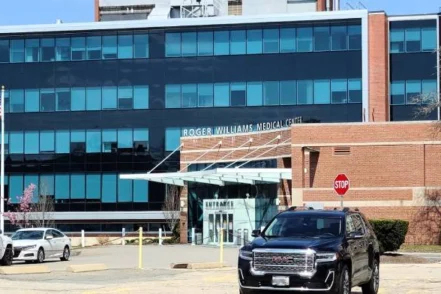 Rhode Island
Rhode IslandRoger Williams Medical Center Addiction Medicine Treatment
825 Chalkstone Avenue Johnston, Rhode Island 02908
-
 Rhode Island
Rhode IslandButler Hospital
345 Blackstone Boulevard Providence, Rhode Island 02906
-
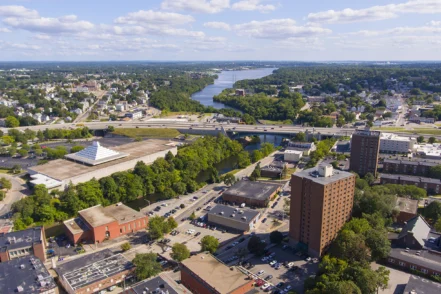 Rhode Island
Rhode IslandGateway Healthcare Benefit Street Apartments
353 Benefit Street, Suite 351 Pawtucket, Rhode Island 02861
-
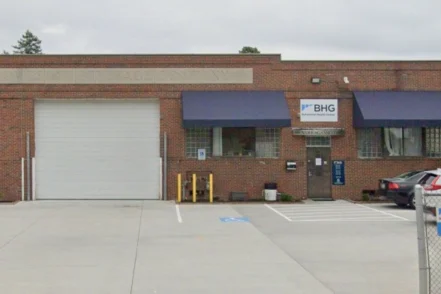 Rhode Island
Rhode IslandJourney to Hope Health and Healing Providence
160 Narragansett Avenue Providence, Rhode Island 02907
-
 Rhode Island
Rhode IslandPhoenix House Exeter
251 Main Street Exeter, Rhode Island 02822
-
 Rhode Island
Rhode IslandThe Providence Center Women’s Road to Recovery
15 Baker Pines Road Wyoming, Rhode Island 02898
-
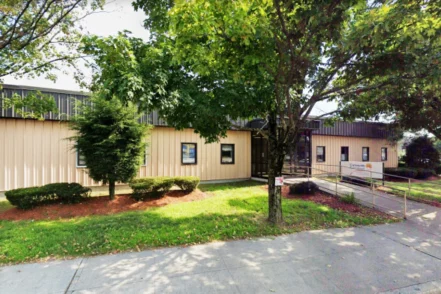 Rhode Island
Rhode IslandCommunity Care Alliance John Cummings Way
55 John A Cummings Way Woonsocket, Rhode Island 02895
-
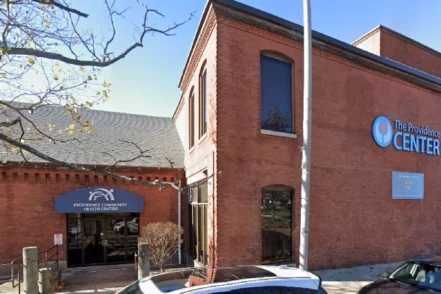 Rhode Island
Rhode IslandThe Providence Center North Main Street
530 North Main Street Providence, Rhode Island 02904
-
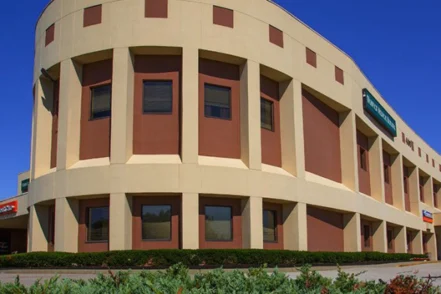 Rhode Island
Rhode IslandAdCare Warwick
400 Bald Hill Road Warwick, Rhode Island 02886